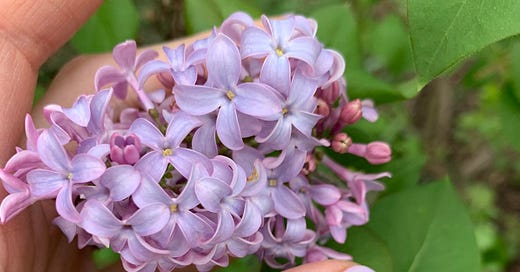Someone I know has been diagnosed with stage 4 cancer. She’s a plucky older gal who is the sort of person who will watch your house, take in the mail and cut your grass while you’re away for the weekend. She knows about plants, ALL of them, and her own lawn is as manicured as a professional ballfield, just prettier. But she avoided the doctor, dentist and healthcare of any kind for years. She’s not alone. There are many people who avoid healthcare and many reasons why they do. Yes, sometimes it is a lack of access or cost but there are also less obvious reasons too. And we need to talk about those more.
A doctor/patient relationship is...a relationship. It must be a right relationship in order for the patient to continue to see and trust that provider. But instead, all too often, it isn't. Patients don't feel, seen, heard or validated by their provider. They are not seen as an expert on their own bodies (although they are) and are sometimes seen as a problem to be solved. None of us are ever a problem to be solved, "even if" we are sick, hurt, struggling or have a chronic condition.
It's worse for patients who are coming from any kind of marginalized identity or background. Black patients are seen as "pain-seeking" and denied painkillers at higher rates than white patients. People in heavier bodies are denied care or have their symptoms or illness downplayed or minimized because of fat phobia. Trans folks are misgendered. Gay folks are assumed to be straight. Women's heart problems are often misdiagnosed because they present differently than men's do. The list goes on.
And yet we continue to demand, as if someone’s health is owed to us, why did it take so long for them to seek care?
None of us are free until everyone is free. We can’t ever be a healthy society unless health is something that we all have access to. In order for that to happen, we need a healthcare system that is equitable, trauma-informed and culturally competent. We need a system that doesn't leave anyone behind, for any reason.
One thing we must do is educate healthcare providers and professionals differently. They must receive training in the effects of trauma including systemic racism, homophobia and weight stigma. They need to understand why relationships are everything, why sharing power matters and that patients aren't "non-compliant"; they just don't trust as easily.
When I saw my plucky friend a few days ago, she was delicate as a baby bird. The cancer appears to be widespread. Always thin, she now looks utterly fragile. No more gardening or being the eyes and heart of our close knit side street. I'm devastated. I think back nine years when I told her how much I missed my childhood lilac trees and how I loved to play in them as a child. That afternoon she dug up her own small lilac tree and hauled it over to our lawn to plant. People like this are rare and now this rare bird is slipping away.
Note: Want to read more? I touch on these issues in this shorty post over at LinkedIn from a few years back.
What’s On My Mind:
I have feelings about having someone outside the diet culture field writing a story for Bon Appetit about why we need to stop calling some food “junk food” but the ideas are sound and it’s a good, important read that I agree with.
Like other Twitter users, I’ve been thinking about its future after the announcement this week that Elon Musk will purchase the platform. I spend most of my social media minutes on Twitter and Instagram, part of that 46% of users who Tweet at least once a day. But until we know and see more about how Musk will influence Twitter (here are some thoughts via The Atlantic) I’ll still be there @EMJWriting. Are you a Twitter user? Staying or going?
My Wondermine co-host, Larissa Parson, and I have launched a Patreon. Details and tiered levels of support (all offering the same bonuses are here). Since Ripe Time is free, this is one way to support my work. Head here for more.




